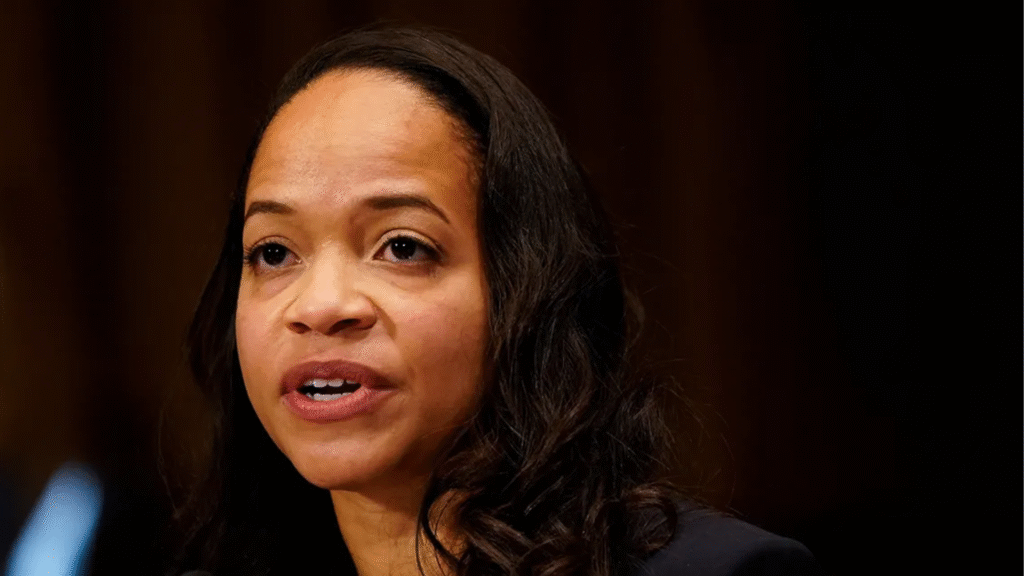
A federal judge in Georgia has ordered the Trump administration to immediately reinstate the legal immigration status of 133 foreign students whose F-1 student visas were abruptly revoked without prior warning.
The ruling follows allegations that U.S. Immigration and Customs Enforcement (ICE) and the Department of Homeland Security (DHS) unlawfully terminated these students’ records, leaving many of them in legal limbo.
In a decision issued by U.S. District Judge Victoria Calvert, an appointee of President Joe Biden, ICE and DHS have been directed to reinstate the 133 foreign students SEVIS (Student and Exchange Visitor Information System) records to active status by 5 p.m. on Tuesday, April 15.
The court found that the agencies likely acted beyond their legal authority when they moved to terminate the students’ statuses without due process.
“Plaintiffs are likely to show that Defendants’ termination of the SEVIS registration exceeds the bounds of statutory and regulatory authority and is therefore unlawful,” Judge Calvert wrote in her ruling.
The case was brought by the American Civil Liberties Union (ACLU) and other legal advocacy groups in the Northern District of Georgia. The named defendants include Attorney General Pam Bondi, Homeland Security Secretary Kristi Noem, and acting ICE Director Todd Lyons.
According to the lawsuit, the affected students—many of whom are academically strong and enrolled in competitive STEM programs—were not notified in advance, nor given any opportunity to respond or contest the termination of their legal status.
Several students were just months away from graduation or were participating in job placements, and the sudden revocation of their F-1 visas placed their education, employment, and future in the U.S. in jeopardy.
The plaintiffs argue that the government’s actions amounted to a coercive push for “self-deportation,” rather than a lawful enforcement measure.
They claim the SEVIS terminations were not based on legitimate violations, but rather a tactic to force students out of the country without proper legal justification.
“DHS’s act of unlawfully terminating SEVIS records appears to be designed to coerce students, including each plaintiff, into abandoning their studies and ‘self-deporting’ despite not violating their status,” their legal team wrote in court filings.
While DHS has contended that some students were flagged during background checks or had visa issues that could justify termination under current immigration law, Judge Calvert rejected these broad claims. The court found no evidence of criminal convictions or valid legal cause in most of the student cases.
Moreover, the government’s argument that the court’s intervention infringes on the executive branch’s discretion over immigration enforcement was dismissed. Judge Calvert ruled that the terminations likely violated both the Administrative Procedure Act (APA) and the Fifth Amendment’s due process protections, emphasizing that the students were entitled to fair procedures before such drastic action was taken.
The court concluded that the students faced a “substantial threat of irreparable harm,” including: Loss of legal immigration status, Disruption of their education, Potential job losses, Significant emotional and mental distress.
Calvert further noted that the public interest favors halting government overreach and protecting due process rights.
Akiva Freidlin, senior staff attorney at ACLU Georgia, welcomed the decision and called it a significant victory for constitutional rights.
“The Constitution protects everyone on American soil, so the Trump administration cannot ignore due process to unjustifiably threaten students with the loss of immigration status, and arrest and deportation,” Freidlin said. “We believe this ruling shows the students are likely to prevail on their claims and we are pleased the court ordered the government to halt its unlawful actions while the lawsuit continues.”
Although the Department of Justice has filed responses in the case, they remain sealed in the court’s docket.
The court has scheduled a hearing for Thursday, April 24, to consider whether to issue a preliminary injunction. If granted, that injunction could provide longer-term protection for the affected students while the lawsuit proceeds.
The case adds to ongoing scrutiny over how federal immigration enforcement agencies operate, particularly regarding non-citizens with valid visas and clean records. It also reflects growing tension between legal advocacy groups and the Trump administration’s hardline immigration policies, especially as the 2024 election cycle continues to ramp up.
The ruling temporarily safeguards the legal status of the 133 students, but the broader fight over due process and federal immigration authority will now play out in court over the coming weeks.

